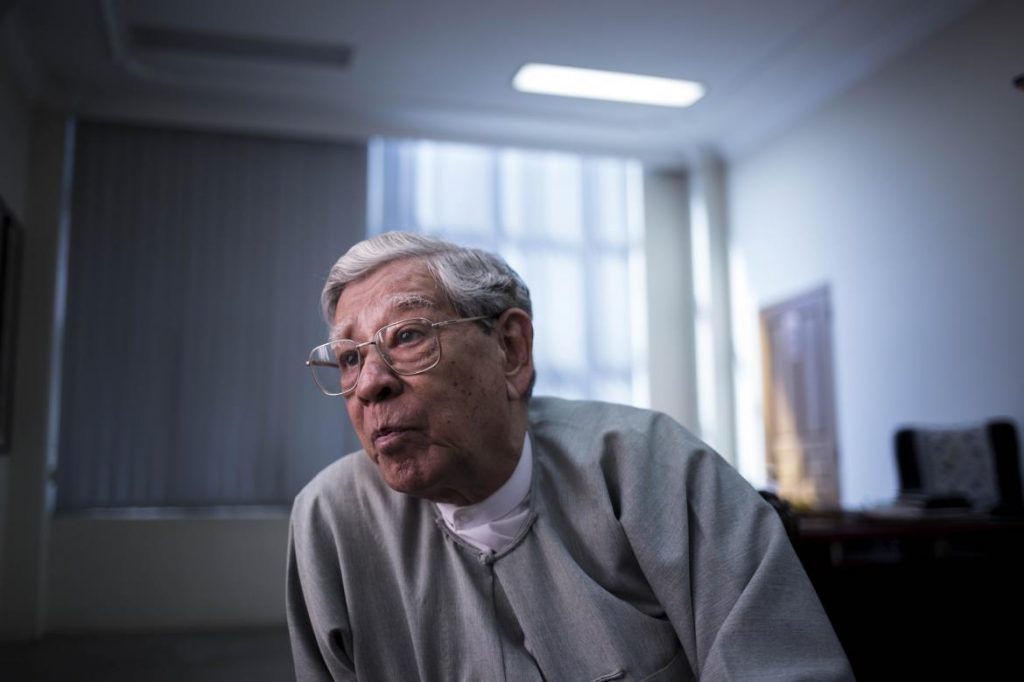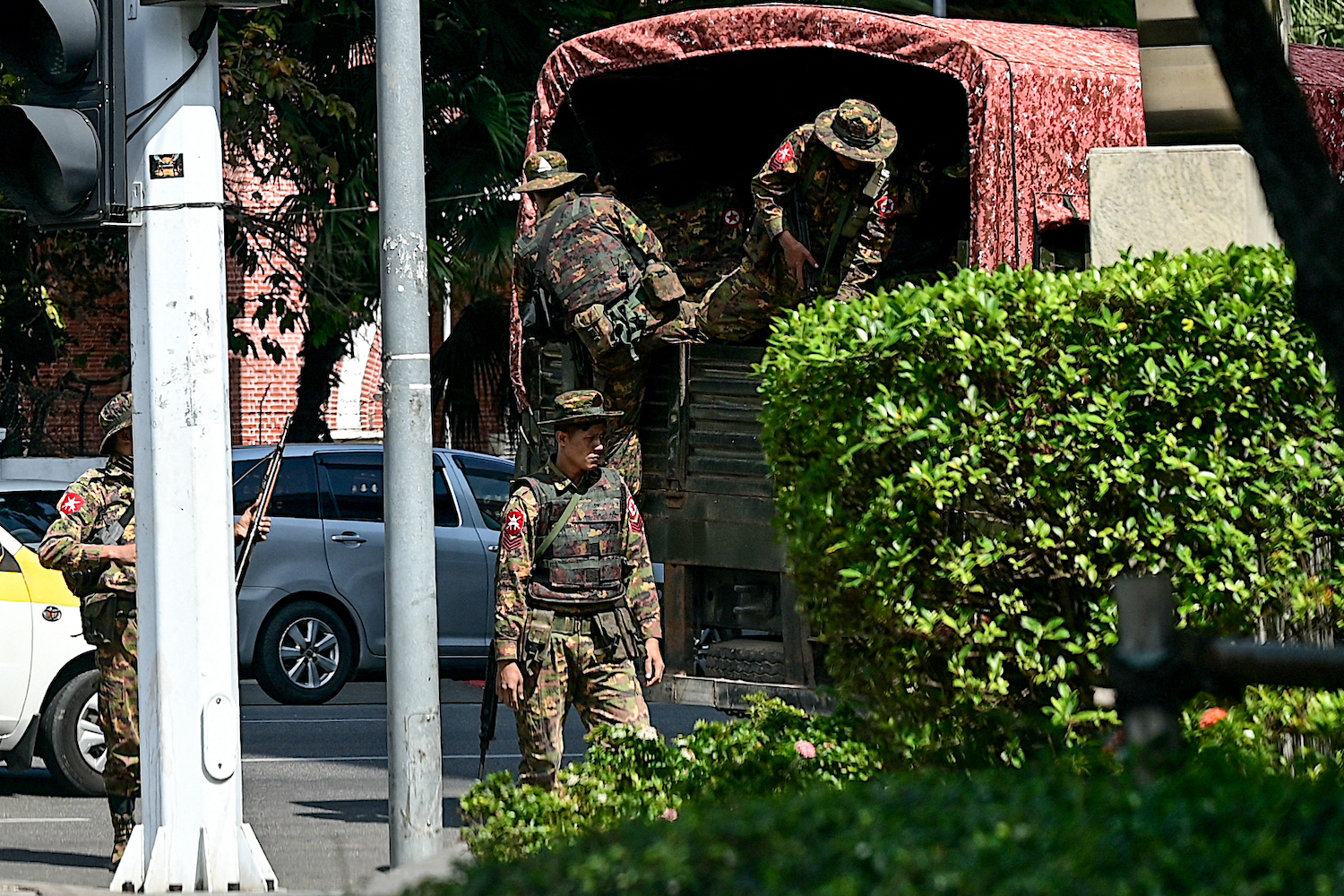By FRONTIER
YANGON — U David Abel, who died on January 20 aged 84, oversaw economic policy as a member of a military junta that rarely heeded his suggestions for reform.
“It was difficult, very difficult,” Abel told Frontier in a wide-ranging February 2016 interview punctuated with expressions of regret at being blocked from implementing reforms that included proposals to strengthen the private sector.
“At first I was promised a free hand, but later I was restricted from doing what I wanted to do,” recalled Abel, whose Tatmadaw career included studies in the 1950s at the UK’s Royal Military Academy Sandhurst, from which he graduated with a degree in economics.
After the Tatmadaw coup on September 18, 1988, he became one of the first members of the resulting junta, the State Law and Order Restoration Council, and was given responsibility for overseeing the economy. He served variously as Minister of Commerce, Minister of Finance and Revenue, and Minister of National Planning and Economic Development. At one time, he ran all three ministries simultaneously.
Support more independent journalism like this. Sign up to be a Frontier member.
He was later appointed to the junta chairman’s office as an advisor on economic affairs. Abel, who as a minister established Union of Myanmar Economic Holdings Ltd and the Myanmar Economic Corporation as Tatmadaw-owned conglomerates in 1990, retired in 2003 with the rank of brigadier-general.
Abel stood out as a member of the junta because he was media-friendly, outspoken and a member of a religious minority. He was a Roman Catholic in a junta dominated by Buddhists and before pre-publication censorship was lifted in August 2012 could only be referred to by his family name because his Christian name, “David”, was banned from publication.
In the run-up to the rigged but historic general election in November 7, 2010, “Brigadier-General Abel” spoke his mind in an interview with Myanmar Times that touched on economic reform, managing inflation and exchange rates.
The interview is evidence of both Abel’s pragmatism and the junta’s extreme sensitivity to even indirect criticism of its management of the economy.
The story was submitted to the censors with the headline “‘Bitter remedies’ needed for reform”, which was rejected and replaced with “‘Good economists’ needed for parliament”.
The story was illustrated by an image of Abel, over which a quote from the interview was superimposed. It said, “Some people are not just resorting to corruption to make ends meet; they are becoming rich”, and was also rejected for publication.
Ironically, many of the reforms he advocated that were censored from the interview – including on exchange rates, financial management, trade policy and tax rates – became signature policies of the U Thein Sein government.
His comments on corruption were also removed. Abel told the Myanmar Times, “What is happening now is that some are not just resorting to corruption to make ends meet; they are becoming rich. Ordinary people are struggling [to earn a living], or even enough to keep them going for one day. This is an important and delicate matter. To heal the disease, a bitter remedy should be taken – but nobody wants to take it.”







